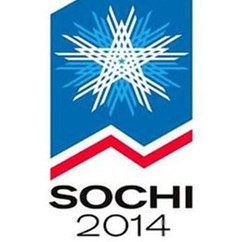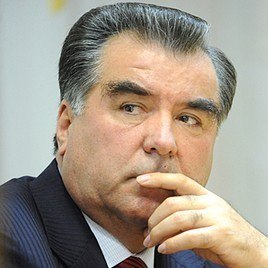President Vladimir Putin has staked his reputation on the 2014 Winter Olympics, scheduled to take place in Sochi, a city on the Black Sea coast, near the Abkhazia border. As preparations for the games enter the home stretch, the Russian government has intensified efforts to ensure security at the event. The threat of terrorism at international sporting events has been highlighted by the recent bombing at the Boston Marathon. The ethnic and religious background of the Boston marathon bombing suspects has intensified fears of a similar attack in Sochi and the possibility that the Boston bombing will be used for a further crackdown on minority populations, primarily in the North Caucasus.
Russian leaders tend to succeed at such high-visibility events as the Olympics. In the past, these included the 2006 G8 summit in St Petersburg and the 2012 APEC summit in Vladivostok. The Sochi Olympics are probably the highest profile event held in Russia since the 1980 Moscow Olympics. Given its decline in credibility, the Putin regime is under a great deal of pressure to ensure that the event is a domestic public relations success. Other than ensuring that all venues are built on time, security issues are the biggest concern facing the government. Two of the most significant sets of issues include:
- public protests against the regime; and
- terrorism and ethnic conflict.
Tightening of the screws
Ensuring a positive image for the Olympics is part of the reason for the recent clampdown on dissent in Russia. Several measures have been implemented recently, including a new law passed in mid-2012 that required any politically active non-governmental organisation that receives funding from abroad to register as a 'foreign agent.'
Wider definition of treason: Furthermore, the definition of treason has been expanded to include the provision of assistance to a foreign state, an international or foreign organisation or its representative in activities directed against the security of the Russian Federation. Under this definition, someone may be convicted of treason for sharing information with foreign agents even if the person does not have access to classified material. The goal of this law appears to be to discourage contacts between Russian nationals and foreigners. There are also fears that it may be applied selectively against opponents of the Putin administration.
Restrictions on protests and online freedom: Moreover, the government has introduced high fines for public disorder and unsanctioned protests. They exceed 9,000 dollars for participants in rallies held without government approval and over 18,000 dollars for protest organisers. The government has also implemented restrictions on free speech in cyberspace, with a law banning websites devoted to drug use, suicide promotion and paedophilia. Many Russian activists fear that this law could also be used to ban anti-government websites.
Terrorism and ethnic conflict
Anti-Putin protests are not the only threat to the image that the government wants to present during the Olympics. Circassians, a North Caucasus ethnic group, want official acknowledgment that their exile from the vicinity of Sochi in 1864 was genocide. The Olympics, which will coincide with the 150th anniversary year of the exile, are perceived by the Circassians as an opportunity to build identity and to remind the world of their challenges.
Radical Islamists and Chechen separatists had until recently largely disappeared from headlines for some time. However, they have not been completely suppressed. While Chechnya itself has, by and large, been pacified, small-scale violence by Islamist groups has spread to other North Caucasus republics, especially Dagestan and Kabardino-Balkaria. The latter is located only a few hundred kilometres from Sochi, causing Russian officials to fear that the Olympics may present an opportunity for radical Islamists to stage a large-scale attack intended to remind people of their cause and to attract funding and recruits.
Previously tense relations with Georgia, on the other hand, are unlikely to cause serious problems in the coming year, especially after Bidzina Ivanishvili's parliamentary election victory in October 2012. Yet Russian leaders remain cautious, keeping troops in Abkhazia and engaging in joint patrols of the border with Abkhaz troops.
Response measures to terrorism
The bulk of security measures undertaken by the Russian authorities are aimed at protecting the Olympics against a potential terrorist attack:
- All Interior Ministry troops in Sochi will be made up of professionals, rather than conscripts.
- Special restrictions on the sale of weapons, including stun guns, were introduced in the region.
- The local security services have compiled a database of background information on all residents. Construction personnel have presented the greatest difficulty, as they are generally not local residents but mostly temporary workers recruited from Central Asia.
Surveillance will play a key role in the Olympics security effort. Video cameras have already been installed in the main locations. During the event itself, security services will also be using unmanned aerial vehicles and reconnaissance robots. Spot checks of luggage will be in place at local airports and train stations.
During the games, strict restrictions on access to the Olympic village and other sites will be in place. This will include background checks for all ticket-holders, who will be given special passes after the screening. Without these passes, visitors will not have access to any events or facilities in the region, including public concerts, museums and theatres.
The Russian military has formed a dedicated 'Operations Group Sochi' to enhance security. This force consists of two brigades, with a third possibly being established this year to provide a total of over 10,000 troops by 2014. The troops, which have extensive experience in mountain warfare and counter-terrorism operations, will be responsible for guarding the mountainous belt from Sochi to the Mineralnye Vody tourist region. The units include aviation forces, such as Su-25SM fighters and modernised attack helicopters. At the same time, Russia's 58th army will be responsible for watching over the southern border with Georgia. Finally, a special air defence force is being formed.
What next
There will be several security 'dress rehearsals' before the Olympics, including the G20 summit in St Petersburg in September this year, and the Kazan World University Games. Many of the measures to be used in Sochi will first be tested in Kazan. Although security services may have a harder time preventing a terrorist act in Sochi than in Kazan, given that endemic corruption in the region may allow attackers to bypass security efforts, protests are likely to be repressed much more effectively.
Impact
- Ensuring that the state does not embarrass itself during the Olympics has been one of the reasons for the laws aimed at curbing protests.
- Olympics-related counter-terrorism efforts have resulted in a high degree of surveillance over the residents of Sochi.
- The Boston bombings may have contributed to higher public support for the Russian position on Chechnya.
Dmitry Gorenburg is a senior analyst at CNA blogging for PONARS Eurasia on military and security affairs in Russia and Eurasia. This comment is also available as an Oxford Analytica brief and on Russian Military Reform.











